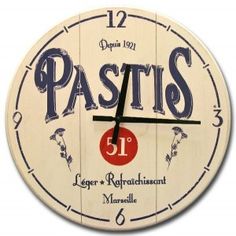I did, though, raise my hand whilst looking at her through my rear vision mirror and call back at her loudly with the supercilious confidence of one who is in the right and far out of earshot, “Trente degrés. Trente degrés.” In the car with me were my daughter and her friend who turned to look at each other quizzically and then back at me as if I had gone mad. It was nowhere near thirty degrees. I had meant to say trente kilomètres and the wrong words had come out. Of course it did nothing to deter the other driver who continued to mouth-off madly as she passed me at the first opportunity.
Road safety figures for 2014 in France were released last week. They showed an increase in both injuries (35000) and road deaths (3384) over the 12-month period, which was the first rise in 12 years. Startlingly, though, that mortality figure has been as high as five times greater. In 1973 the national road toll was 17,861. That year the village of Mazamet in the Tarn conducted a Journée Ville Morte (Dead Town Day). As a town of roughly the same population as the national road toll, the inhabitants, at a pre-designated hour lay down, immobile in the streets for ten minutes in a stunt to raise awareness of the seriousness of the situation.
The first time I was asked to blow into the bag at a random breath testing station I was like a nervous schoolgirl. Actually, I wasn’t long out of school and probably looked like one too. I knew that I had had nothing to drink but I still wondered if the indicator would collaborate my story or if I would be appearing in the Launceston Daily the next day. This fear had sane, normally mature male friends stopping their car in sight of the breath testing unit, flinging open all car doors simultaneously and running for the hills, only to be scooped up by the police waiting around the corner and shamefacedly brought back to front the bag-touting ‘men in blue.’
Between 20 and 30% of fatal accidents in France and Australia can still be attributed to alcohol. Back in November 2011 the then French President, Monsieur Sarkozy announced that, as of spring 2012, every car would be required to carry a breathalyzer kit. The announcement came during the presentation of the ‘Echarpes d’or’ or ‘golden scarves,’ which is an initiative of the Road Safety office and rewards communities for their attempts to improve road security. The efforts recognized can be for improvements in infrastructure, campaigns to educate or raise awareness of road safety issues or promotion of the respect of the road rules.
Of course, the requirement to purchase and leave a breathalayser kit in every car created debate and discussion. An opinion poll conducted by our local paper, which prompted nearly 3000 people to vote gave an outstanding ‘no’ to the idea. There was the usual skepticism concerning it being an excuse to revenue-raise. Then there was this - “The drunker I am, the faster I drive so I am not on the road as long and therefore am not as dangerous to others.”
The latest road accident figures also indicated an increase in the number of cyclist deaths. It is still not compulsory to wear a helmet when out riding in France. But, time has rendered me complacent. Initially, I would point out to my husband every non-helmeted bike rider with an exclamation of surprise, bordering on contempt. After years of living in France I don’t think I even notice the lack of protective headgear anymore. Sadly I tend to register the clothing and style of the Frenchwomen who manage to ride, without a helmet, but with high heels, scarves and mini skirts and not look at all sweaty or dishevelled. I am usually more distracted with jealously wishing I knew how they did it.




